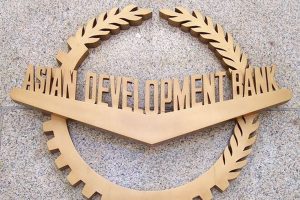THE Asian Development Bank (ADB) will increase its investments in reducing lead exposure in the Asia-Pacific, noting the health and economic costs it imposes on countries in the region.
In a statement, the Manila-based multilateral lender said it has entered into partnerships with various institutions to eliminate childhood lead exposure by 2040.
The Partnership for a Lead-Free Future, in collaboration with United Nations Children’s Fund and the US Agency for International Development, will target high-risk countries like Bangladesh, Indonesia, India, and Nepal.
The bank will also integrate lead elimination into its universal healthcare support programs, starting with the Philippines.
“Lead exposure doesn’t just affect children’s health — it holds back entire economies,” ADB Vice-President for East and Southeast Asia and the Pacific Scott Morris was quoted as saying.
“We will dedicate ADB’s expertise and resources to help ensure that countries across Asia and the Pacific can mitigate lead exposure, enhance public health, and secure a healthier, more productive future for all.”
Lead is a strong neurological and cardiovascular toxicant, accounting for about 1.5% of global deaths yearly, UNICEF and nonprofit organization Pure Earth said in a 2020 report.
At least 400 million children in the region are affected by toxic lead exposure, causing major economic losses, health risks, and cognitive impairments, ADB said.
Lead-related cognitive underdevelopment costs $1 trillion in economic losses yearly, it added.
The bank has also begun discussions on lead contamination with the governments of the Philippines, India, and Indonesia, it said.
The ADB is also looking to develop a Chemical and Wastes Financing Partnership Facility, which will focus on chemical management, especially on lead mitigation. This will be done in collaboration with the Global Environment Facility and the United Nations Industrial Development Organization.
“Through these programs, ADB has been working to ensure equitable access to health services, address gender-specific health needs, and mitigate the health impacts of climate change,” the bank said. — Beatriz Marie D. Cruz
